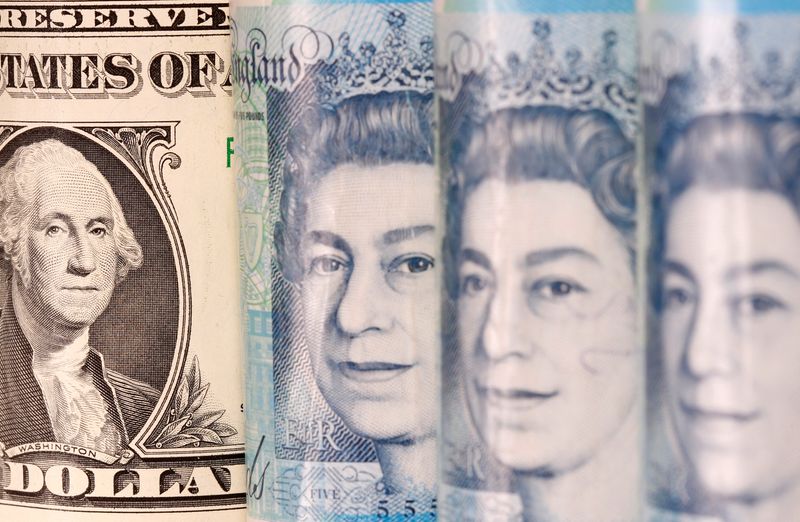By Stefano Rebaudo
(Reuters) - Sterling rose versus the dollar and the euro as investors assessed the Bank of England's monetary policy path after recent mixed signals from policymakers.
The pound dropped late last week and on Monday versus the greenback as Governor Andrew Bailey said that inflation was broadly declining in line with BoE forecasts, which would indicate that interest rates might fall more quickly than the market currently expects.
On Tuesday, it jumped against the dollar after a softer reading of monthly U.S. business activity battered the dollar.
"With sterling undershooting the move in UK rates and more balanced commentary this week, our bias would be to fade the recent dovishness and for the pound to retrace some of its losses," said Kamal Sharma, forex strategist at BofA.
BoE Chief Economist Huw Pill said on Tuesday that rate cuts remained some way off, even if the passage of time and an absence of bad news on inflation had brought them closer.
Some analysts argued that recent British economic data would suggest a later rather than earlier start of the BoE monetary easing cycle.
"However, with June now pricing in a greater chance for cuts, we doubt that the pound will immediately recapture its recent highs ahead of the May BoE rate meeting," BofA's Sharma added, flagging the May 9th quarterly inflation report as the most important event for the British currency.
Sterling was up 0.4% at $1.2519, having risen 0.8% on Tuesday, the most in one day since mid-December. It dropped around 1.5% from Thursday to Monday.
The pound's decline against the euro resulted from the dovish comments from BoE officials, which were further compounded by solid economic data in the euro area. This included euro zone business activity expanding at its fastest pace in April of nearly a year, and Germany's private sector unexpectedly returned to growth.

Sterling recouped some losses in the last two sessions, with the euro at 85.64 pence per pound after hitting on Monday 86.44, its highest level since early January.
UBS maintained its 85-87 range view for the euro against the pound, with a target at 85 for the end of the second quarter.